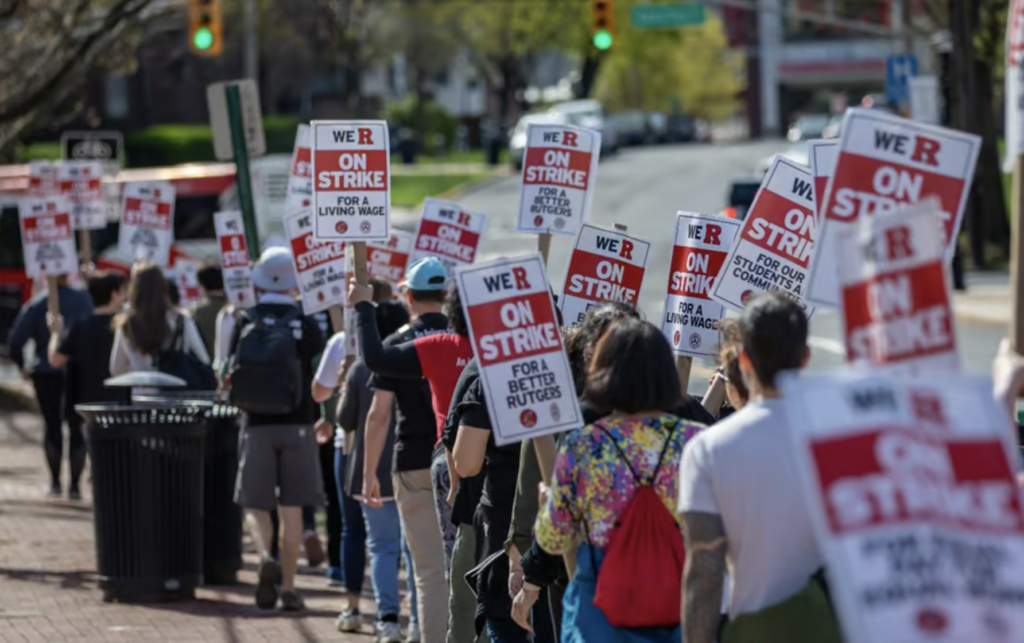May 1, 2023
This May Day, Let’s Celebrate the Campus Labor Movement
By Eleanor Buchanan
Union organizers and student journalists in Michigan, Oregon, North Carolina, and Arizona document the ongoing labor campaigns at their universities.

Over the last few years, workers in the United States have propelled a resurgent wave of union organizing. With the approval of organized labor at its highest among young people, it’s no surprise that colleges and universities have been a linchpin of the movement. Across the country—from resident advisers at Columbia University to dining workers at William & Mary to undergraduates at Dartmouth and beyond—workers in higher education are demanding better pay and conditions as tuition and fees continue to skyrocket. To understand what’s at stake, we asked a few young organizers and student journalists to give an update on a few of these ongoing campus campaigns.
Graduate student workers at the University of Michigan have been on strike since March 29, 2023. For graduate workers organized in the Graduate Employees’ Organization (GEO), American Federation of Teachers Local 3550, this is our second strike in three years, part of a growing wave among graduate student workers across the country, including Columbia and Temple universities and the entire University of California system.
We know graduate school shouldn’t be a struggle. We work long hours contributing to our universities for pay that simply does not meet our material needs. We are fed up and ready to fight.
Our strike at the University of Michigan is a microcosm of what graduate workers are facing across the country. We are putting forward a vision of a University of Michigan where anyone can be a grad student—not just those who are independently wealthy. Like the vast majority of Americans, we are facing a cost-of-living squeeze. Our members have seen the gap between our salaries and the local cost of living triple in the last three years. That’s why we’re asking for a living wage of $38,500 each year and additional support for those who need them—like international students, parents, and disabled workers. We’re also demanding a dignified and safe workplace by proposing expanded protections for workers who have been harassed (especially important given UM’s embarrassing record on this issue), an unarmed non-police crisis response program, and more accessible gender-affirming care.


